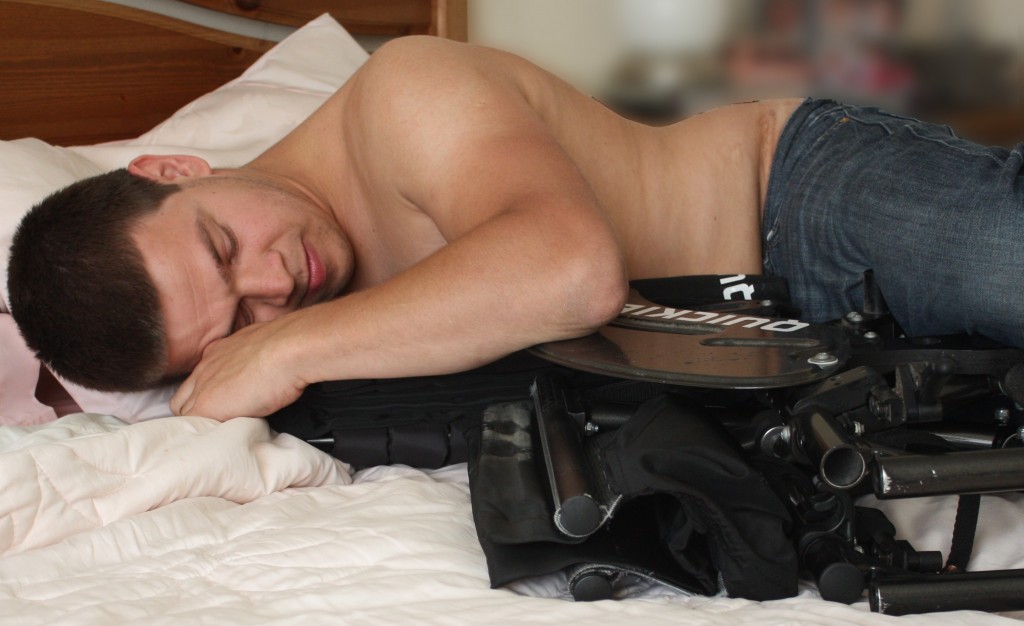 Writer/actor Robert Softley asked a simple question while preparing his new show, as part of the 2012 Behaviour festival at The Arches in Glasgow. Given how much their bodies define how others see them, what do disabled people think of their bodies themselves? The answers, as Paul F Cockburn discovered, might surprise you.
Writer/actor Robert Softley asked a simple question while preparing his new show, as part of the 2012 Behaviour festival at The Arches in Glasgow. Given how much their bodies define how others see them, what do disabled people think of their bodies themselves? The answers, as Paul F Cockburn discovered, might surprise you.
“I don’t want to be stared at. I don’t want to be invisible.” It’s the dichotomy that all too many disabled people experience when non-disabled people either can’t stop looking at them or can’t see them at all; reactions that, on occasions, can be genuinely far more crippling than any impairment when it comes to a disabled person’s self-esteem. That it is made so forcefully and yet so touchingly, in this new show by Robert Softley underlines how grounded his new one-man show is in the genuine experiences of disabled people.
Arguably, of course, Softely is in a situation where he does want to be stared at, and certainly doesn’t want to be invisible; the show literally is just him, a comfortable chair, a suitably edited musical score and a background of soft, mainly monochrome images of himself and the three other disabled people who contributed to — or inspired elements in — If These Spasms Could Speak. A simple and effective monologue, consisting of different people’s responses to his question, Softley marks the boundaries between one narrator to the next, simply by shifting position on the chair. It takes a while for you to realise that this movement is by no means as random as it might appear – each position is linked to one particular character.
This show is a surprisingly complex, intertwined mix of memories and experiences. At its core are Softley’s own tales of growing up, of how he became aware of other people’s attitudes to his own physicality – not least how his own brand of crawling around “worked well” for him but not his mother.
The funniest – and yet also most disturbing – example of this was how, while Softely was visiting his asthmatic brother in hospital, a young doctor assumed he was another patient and proceeded to ask the kind of personal questionsthat no one in their right mind would ask, except in a hospital context. Underlined by Softely physically stripping, this effectively underlined how too often non-disabled people view those with impairments – such as Softley’s own cerebral palsy and his speech impediment. It’s clear that having a detailed medical understanding of human anatomy is a taxi-ride away from knowing what your body actually feels like.
The other contributions to Softley’s script provoked both laughter and more sober reflections on how our own physical limitations can influence our own psychological development; and how, if we’re lucky, time itself leads to an acceptance of our scars – physical or otherwise – being an unavoidable part of who we are.
With only a brief run at the Arches, Glasgow, here’s hoping that such a celebratory production will be revived in some form in the near future.
Behaviour 2012 continues at the The Arches, Glasgow until 29 April. Click here for more information.